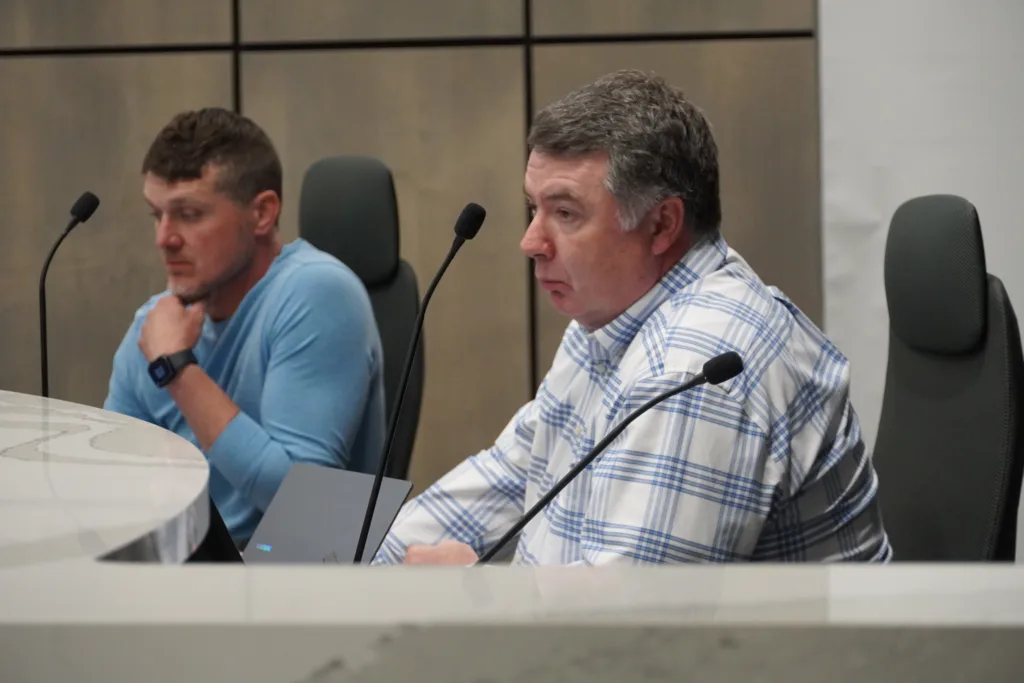

MINOT — A decades-old cap on full retail liquor licenses in Minot took center stage Monday night during a charged public hearing at City Hall. The City Council heard extensive public testimony and debate between members, but declined to move forward with any immediate direction to staff, opting instead to revisit the issue in September, once a full seven-member council is seated.
The ordinance in question, part of a proposed rewrite of Minot’s alcohol regulations, outlines four options for potentially changing how liquor licenses are distributed in the city. At the core of the debate is whether Minot should continue limiting the number of licenses, a policy critics argue inflates values, restricts new businesses, and protects incumbents at the expense of consumers.
Committee Chair Alderman Paul Pitner opened the hearing with a detailed defense of the review process by the committee, addressing accusations of self-interest that arose online over the weekend, and laying out the reasoning for revisiting the cap. Pitner affirmed his support for a system based on the free market and deregulation, while insisting he has no intention of personally benefiting from any license changes.
Attorneys representing multiple license holders, including Marketplace Foods, voiced tentative support for Kevin Black’s proposal, which would preserve a minimum of $100,000 license fee and grant current holders right of first refusal if the cap is removed, if there has to be a change at all. The most impassioned testimony came from license holders and bar owners who argued that removing the cap, especially without full compensation, would negatively impact their businesses. Tony Mueller of Sports on Tap questioned if he would have opened the rooftop addition to his bar had he known the cap would be lifted. Richard Napora of the Ranger Lounge and Melissa Wright of Arny’s 2.0 criticized proposals that would let newcomers pay a fraction of the six-figure sums they had invested and raised potential litigation openings. With current owners paying into the system, they view the change as unfair. “You’re trying to take away my retirement,” Wright said.
Former Alderman Josh Wolsky proposed a compromise that would cap gaming rights, notably electronic pull tabs, rather than liquor licenses themselves. His plan would preserve the value of existing full liquor licenses by tying them exclusively to gaming privileges, while allowing the city to introduce new, lower-cost license types like tavern or off-sale permits. Wolsky framed the idea as a way to maintain economic opportunity while avoiding costly payouts or lawsuits.
Following more than an hour of public testimony, the Council opted not to take immediate action on the proposed liquor license reforms, instead agreeing to revisit the discussion in September once a full seven-member council is hopefully seated. Aldermen Paul Pitner and Mark Blessum both emphasized the need for more dialogue with license holders to explore whether a workable compromise exists.
Council members expressed mixed views on how to proceed. Some, like Alderman Rob Fuller, argued that lifting the cap would unfairly penalize existing businesses who had invested heavily under the current rules. Others, including Blessum, maintained that deregulation is likely a necessary step toward fairness and economic opportunity, but acknowledged concerns raised during the hearing warranted further thought and consideration. Despite differing views on how to proceed, council members largely agreed that any final ordinance must be mindful of community opinion, legally defensible, supportive of business growth, and respectful of the investments made by current license holders.